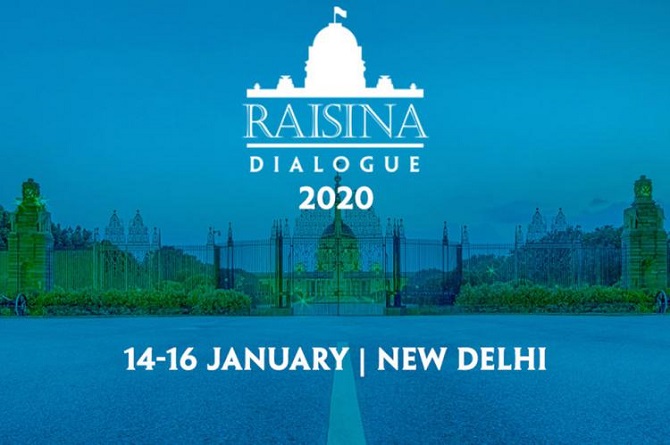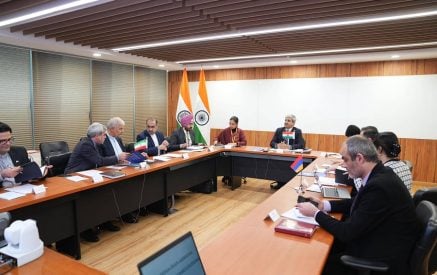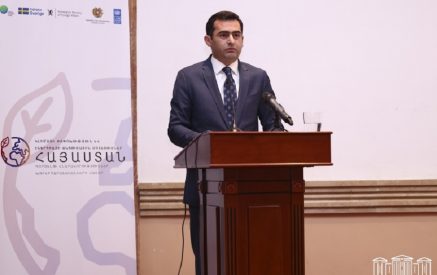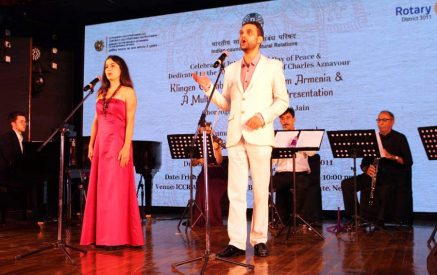The EU and India need each other. In a multipolar world where multilateralism is increasingly under threat, the two world’s largest democracies, are both staunch supporters of the rules-based international order and feel the urgency to scale up their strategic partnership. It is in this context that Josep Borrell is travelling to India in his first visit to Asia as EU High Representative.
On Thursday, the EU diplomacy chief will be in New Delhi and hold bilateral meetings with key international and Indian interlocutors. He will also deliver the closing address of the Raisina Dialogue 2020, a high-level conference organised by the Indian Ministry of External Affairs and the Observer Research Foundation since 2016, aimed at addressing the most challenging issues facing the global community.
Raisina Dialogue 2020: Debating future frameworks in a disrupted world
Over 2.600 participants will gather in New Delhi for the fifth edition of the Raisina Dialogue to discuss cooperation on a wide range of relevant international policy matters. This year´s overarching theme, ‘Navigating the Alpha Century , serves as the umbrella for a multi-stakeholder, cross-sectoral discussion involving around 600 speakers from 105 countries. Indian Prime Minister Narendra Modi will inaugurate the forum attended by 13 serving foreign ministers –including the Iranian, Mohammad Javad Zarif, and the Russian, Sergey Lavrov- and seven former heads of government, as well as military officers, diplomats and leaders from business, academia and media.
Read also
At the closure, Borrell will address the audience and touch upon EU’s role in contributing to global peace and security. The High Representative will focus his speech on key priorities for Europe such as the ongoing crises in the wider Middle East; the EU’s commitment to enhance engagement on security and sustainable connectivity in the Indo-Pacific region; and the importance of stronger EU-India cooperation to help revitalise multilateralism.
A future of opportunities for a stronger EU-India cooperation
In his speech, Borell will call to step up cooperation with India in several realms, i.a:
Climate change
With its new Green Deal, Europe is ready to become carbon neutral by 2050, but that alone is not enough to save the planet: the EU only accounts for 9% of total emissions. The EU-India Clean Energy and Climate Partnership (CECP), agreed in 2016, and the EU alliance with the International Solar Alliance, headquartered in India, can become key tools to ensure the full implementation of the Paris Agreement worldwide.
The multilateral system
On the 75th anniversary of the United Nations, the EU and India share a strong interest in upholding the UN as the central pillar of the multilateral system. The High Representative will call to step up concrete cooperation between the two powers, both in New York and Geneva.
Trade
Although the EU and India have not yet concluded a Free Trade Agreement (FTA), both agree on the vital role of the World Trade Organization (WTO) and the need to overcome the crisis of the dispute settlement system. Until a FTA with India can finally become a reality, the EU proposes the negotiation of an Investment Protection Agreement.
Cyber space
Both the EU and India can deepen their cooperation on the common defence of cyber freedoms and the free flow of data. Both powers stand against the current drift towards high-tech ‘de-coupling’, which would end up in a split cyber space with competing systems and standards; and believe in fair competition, based on global standards, for 5G, AI, Big Data and the Internet of Things.
European Union
























































